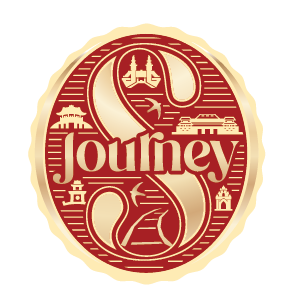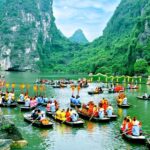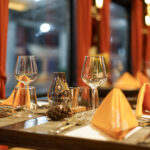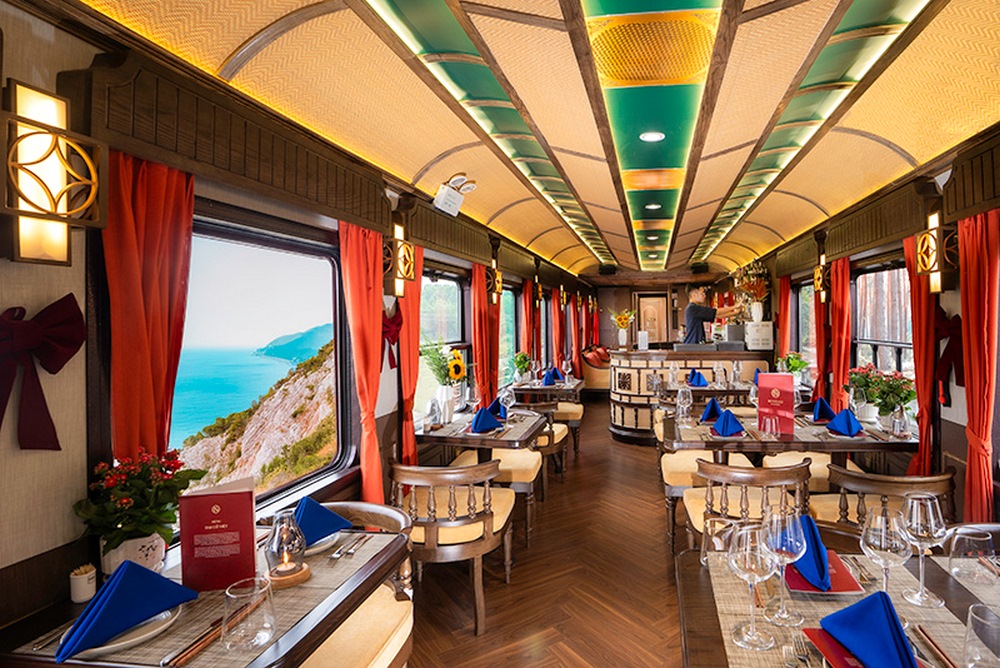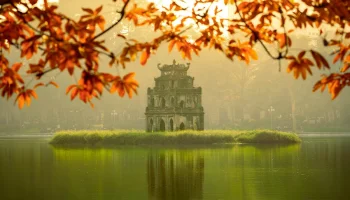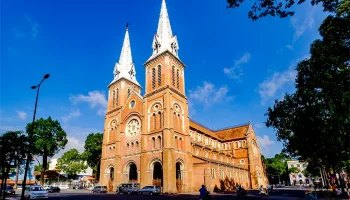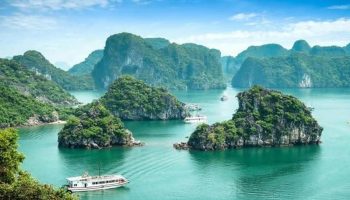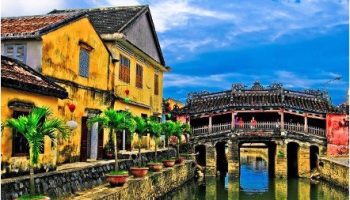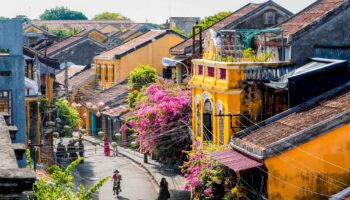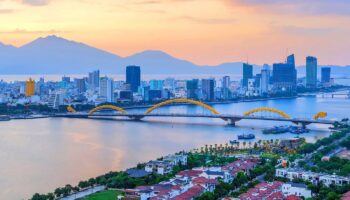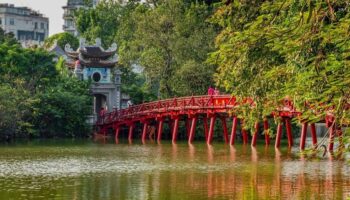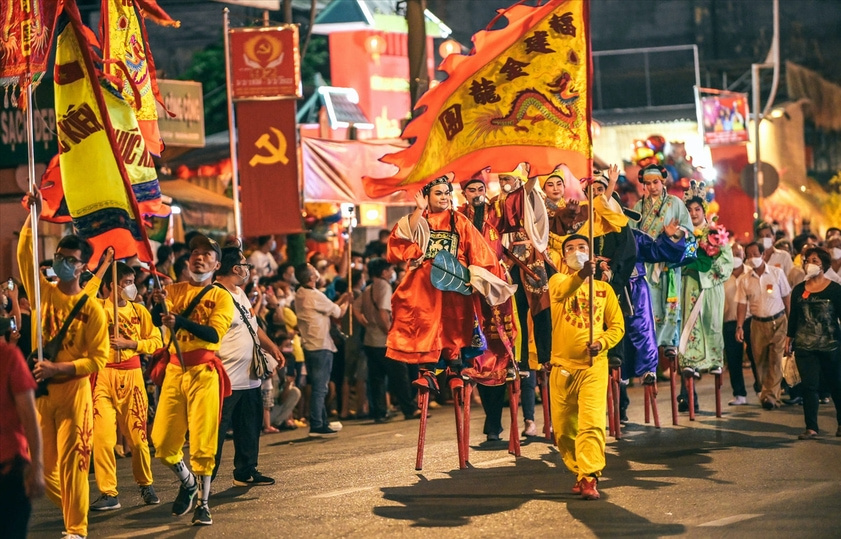
Festivals in Vietnam: A Celebration of Culture and Tradition
In Southeast Asia, Vietnam charms itself with its diverse, vibrant, and lively cultural heritage. These celebrations embody the spirit and history, accumulated throughout the years. It is not just about entertainment but acts as a reminder of origins, core values, and more. Dive into this blog for an immersive depiction of festivals in Vietnam.
Table of Contents
ToggleThe Importance of Festivals in Vietnam

In Vietnam, festivals are an important part of daily life and community ties. It is a way of honoring ancestors, celebrating the changing seasons, and bringing people together. Each festival is deeply connected to Vietnamese culture and often has its origins in centuries-old traditions. The ancient ritual also reflects the country’s spiritual diversity. With influences of Buddhism, Confucianism, and Taoism have shaped traditions and customs for generations to share happiness and wealth.
Vietnamese people believe that by paying respect to their religions and their ancestors, they will receive luck and protection for their wishes. Many festivals in Vietnam are celebrated with great enthusiasm. From traditional to contemporary, these events bring together people from all walks of life, further deepening the nation’s community. These festivals often feature food, music, dance, and rituals providing a truly immersive experience, with each festival having its own importance and charm.
The Major Festivals in Vietnam
Vietnam has a diverse type of festivals with countless regional and lesser-known festivals. However, some festivals stand out because of their cultural significance and wide participation. Here are some important holidays in Vietnam:
1. Lunar New Year (Tet Nguyen Dan)
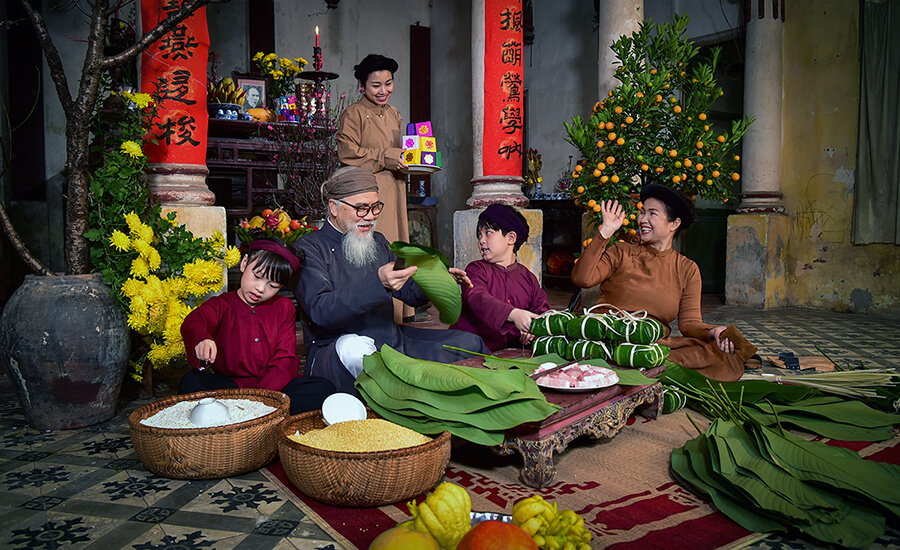
Tet Nguyen Dan or Lunar New Year is the most important and celebrated holiday in Vietnam. This marks the arrival of spring and the beginning of the lunar year. For Vietnamese, Tet is not only a time to celebrate new beginnings. But it is also an opportunity to honor ancestors and ask for blessings for the coming year.
During the New Year festival, families will come back together to worship their ancestors and carry with them offerings such as fruit, cakes, and incense at the family altar. One of the most interesting rituals is the offering of “li xi” to children and elders to bring prosperity. In addition, there are a lot of traditional dishes such as banh chung (flat glutinous rice) and banh tet (cylindrical glutinous rice) to share with your loved ones. Tet is not just about family, it is also a national holiday. Cities across the country come alive with colorful parades, snake dances, and fireworks. Shops, markets, and houses are decorated with peach blossoms, kumquat trees, and colored lanterns.
- Date: Usually held in January or February, based on the lunar calendar.
- Place: Nationwide
2. Mid-Autumn Festival (Tet Trung Thu)
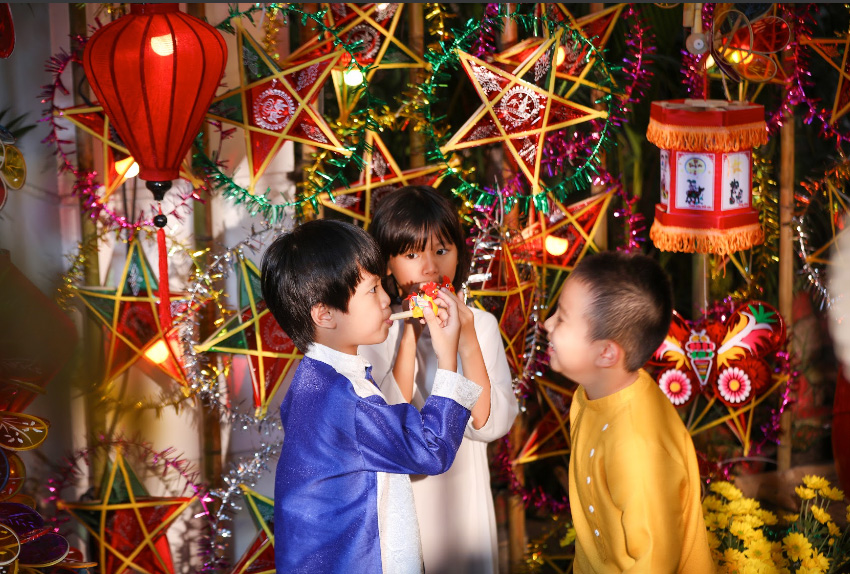
The Mid-autumn Festival or Tet Trung Thu is a fun event geared towards children, usually to celebrate the harvest and the full moon. It is often called the “Children’s Festival” because it symbolizes the love and care parents have for their children with the mooncakes representing the love. This is a traditional cake that is filled with various ingredients such as lotus seeds, salted eggs, or red bean paste. Families exchange mooncakes, and children carry lanterns shaped like stars, animals, or flowers in colorful processions.
At night, family members gather outside to watch the full moon. It is a symbol of unity and harmony in Vietnamese culture. In addition to lanterns and moonlight, Tet Trung Thu also has lion dances, parades, and folk performances. It makes for a great way for families to celebrate together.
- Date: On the 15th day of the eighth lunar month
- Place: Nationwide
3. Hung Kings’ Festival (Gio To Hung Vuong)
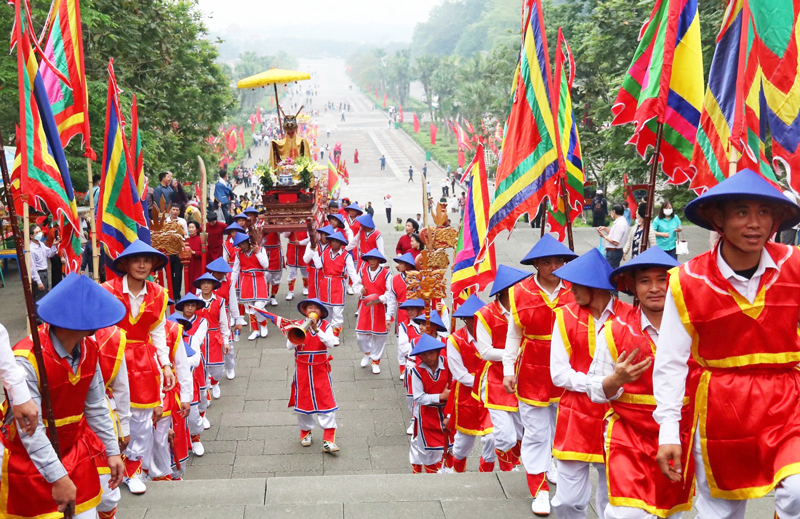
The Hung Kings Festival commemorates the founding of Vietnam by the Hung Emperor. It is believed that the first empire of Vietnam was established in 2879 BCE. This ceremony is a national holiday and is celebrated with great pride and a big ceremony. The central ceremony is held at the Hung Temple in Phu Tho Province, where thousands of people gather to pay homage to King Hung. The festival includes rituals, offerings, and processions that highlight the country’s ancient heritage. Participants dress in traditional clothing and present food, flowers, and incense to pay homage to the ancestors who shaped Vietnam’s early history. Read more about the Hung King’s relation to the origin of Vietnamese people.
- Date: On the 10th day of the 3rd lunar month
- Place: Hung Temple in Phu Tho Province
4. Vietnam’s Independence Day
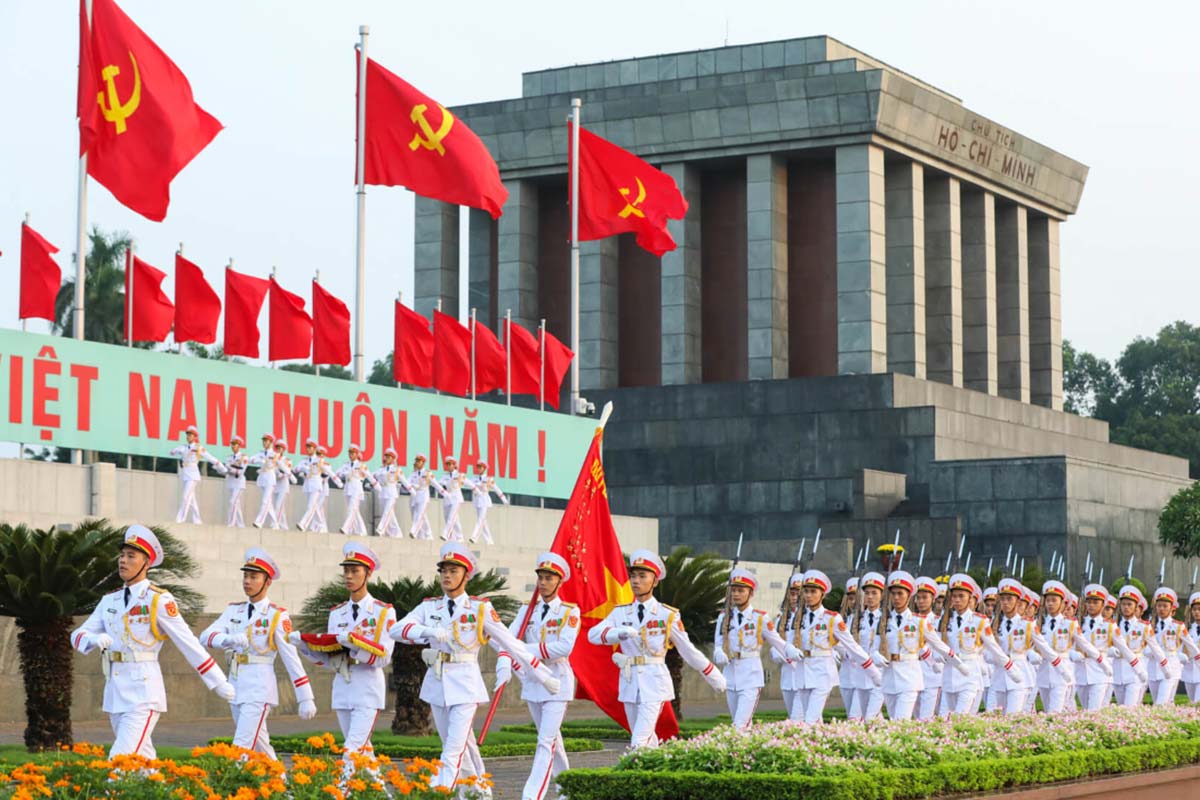
Vietnam’s Independence Day is and is an important moment in the country’s history. On this day in 1945, Ho Chi Minh City proclaimed the country’s independence from French colonial rule and established the Republic of Vietnam. The announcement was made at Ba Dinh Square in Hanoi, signaling the end of a century-long struggle for independence. This day is celebrated across the country with official ceremonies, parades and lively cultural performances. Some years there will be fireworks that light up the sky in major cities. And this serves as a powerful reminder of the resilience and determination that has shaped modern Vietnam.
- Date: Celebrated on September 2
- Place: Nationwide
Regional Festivals in Vietnam
Although national holidays such as Tet and Hung King Festival are widely celebrated, some regions also have special events that reflect local customs and traditions. These festivals are often deeply rooted in the culture of a specific area and provide an opportunity to explore the diversity of Vietnamese culture.
Hoi An Lantern Festival
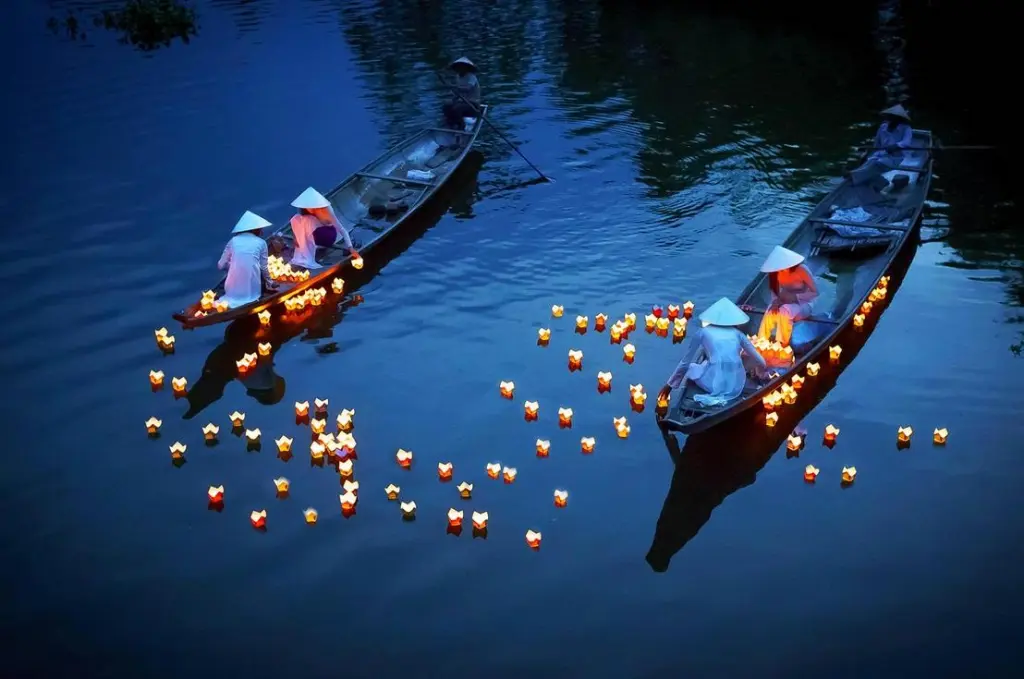
Hoi An Lantern Festival is a magical event that transforms the historic town of Hoi An into a colorful wonderland. During the festival, the streets of Hoi An’s historic center are decorated with countless lanterns. It creates a warm and charming atmosphere. This is because the lights are being replaced by the soft glow of traditional lanterns. The highlight of the festival is the placing of paper lanterns in the Thu Bon River. There, people will wish for good luck and happiness. In addition, there are many delicious street foods and the residents dress in traditional Ao Dai clothing, which contributes to the celebration of Vietnamese culture. The Hoi An Lantern Festival is a celebration of light, hope and community, giving visitors an opportunity to experience the city’s rich heritage and spiritual traditions.
- Date: Hoi An ancient town in Da Nang Province
- Place: Every month on the 14th day of the lunar month
Lim Ceremony
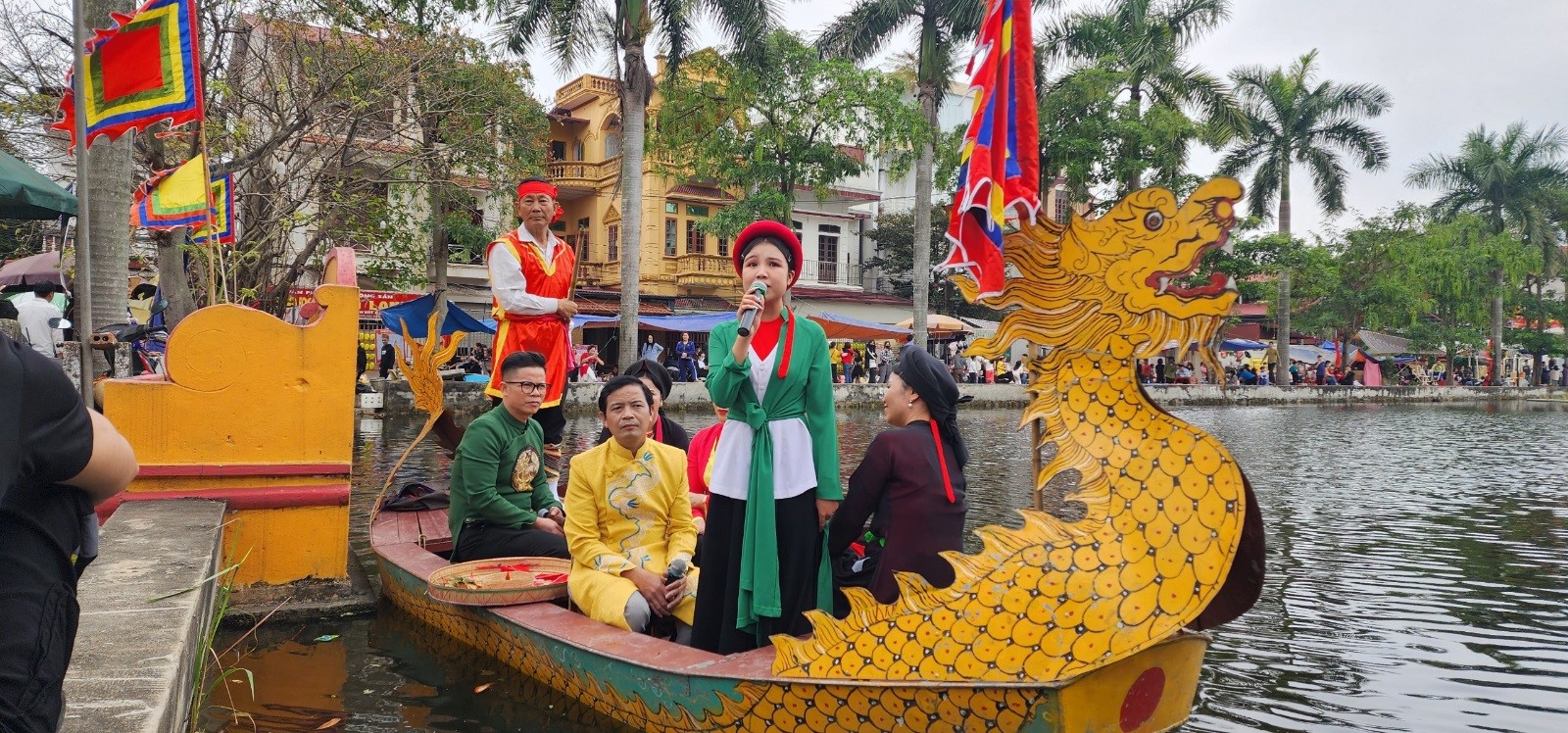
The Lim Festival in Bac Ninh Province is famous for its Quan Ho music, which has been designated a UNESCO Intangible Cultural Heritage, the festival is a celebration of an ancient dance in which two groups of performers dance. Visitors can witness the wonderful performance of Quan Ho dancers, who display soulful and poetic encounters. This is an ideal festival for music lovers who want to experience Vietnamese folk music in an immersive way.
- Date: Bac Ninh Province
- Place: In January or February every year.
Hue Festival
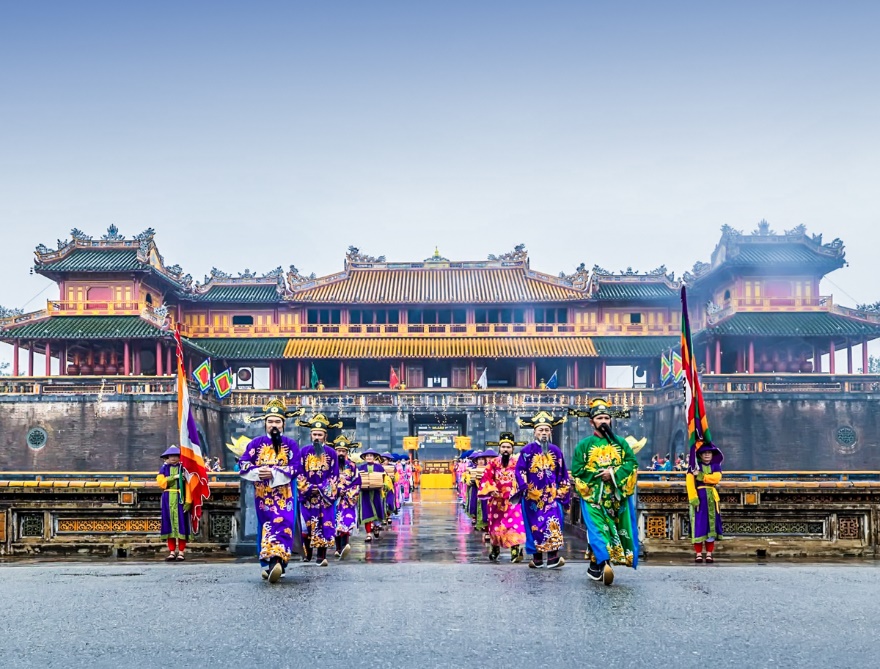
The Hue Festival is an important cultural event in Central Vietnam. It celebrates the rich history and royal heritage of Hue, the former capital of Vietnam from 1802 to 1945. The festival includes a grand royal procession with traditional music and performances that reflect the cultural richness of the Nguyen Empire in the dynasty. The Hue Festival is a wonderful opportunity to witness the grandeur of Vietnam’s past dynasties.
- Date: Held every two years
- Place: Hue Imperial City
Unique and Quirky Festivals in Vietnam
Vietnam is home to some unique and quirky festivals that may not seem ordinary to outsiders but it plays an important part in the local culture. Here are our top list:
Buffalo Fighting Ceremony
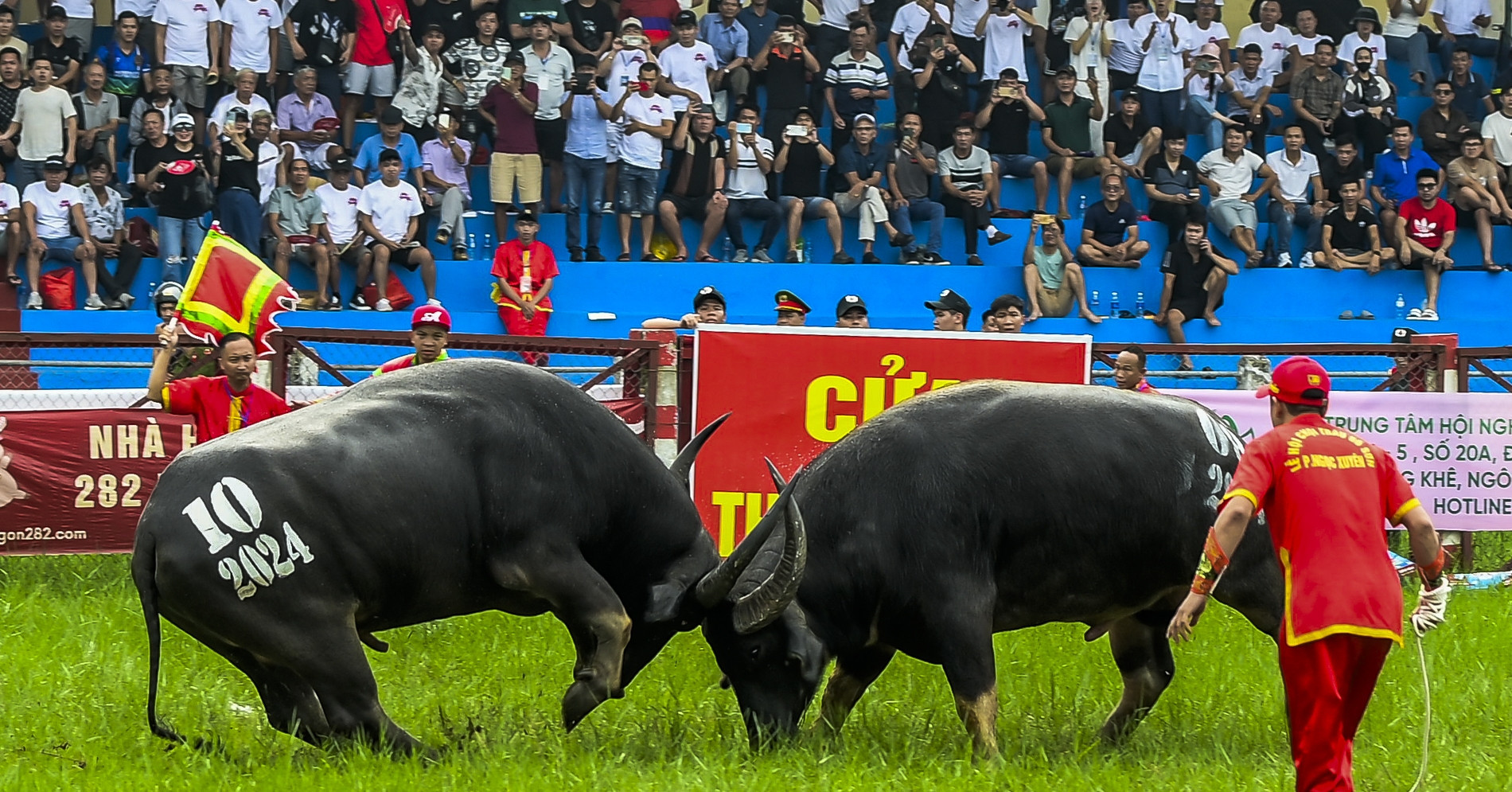
The buffalo fighting festival in Do Son, Haiphong is one of the most unique festivals in Vietnam. This ancient festival consists of competitions where trained bulls fight in barns. The event was full of excitement and drama. It attracts crowds of people to watch powerful animals battle for control. Although the festival has been controversial over animal rights concerns, the festival is still an important part of local tradition in Do Son.
- Date: During the 9th – 10th day of the first lunar month.
- Place: Do Son District, Hai Phong province
Elephant Running Festival
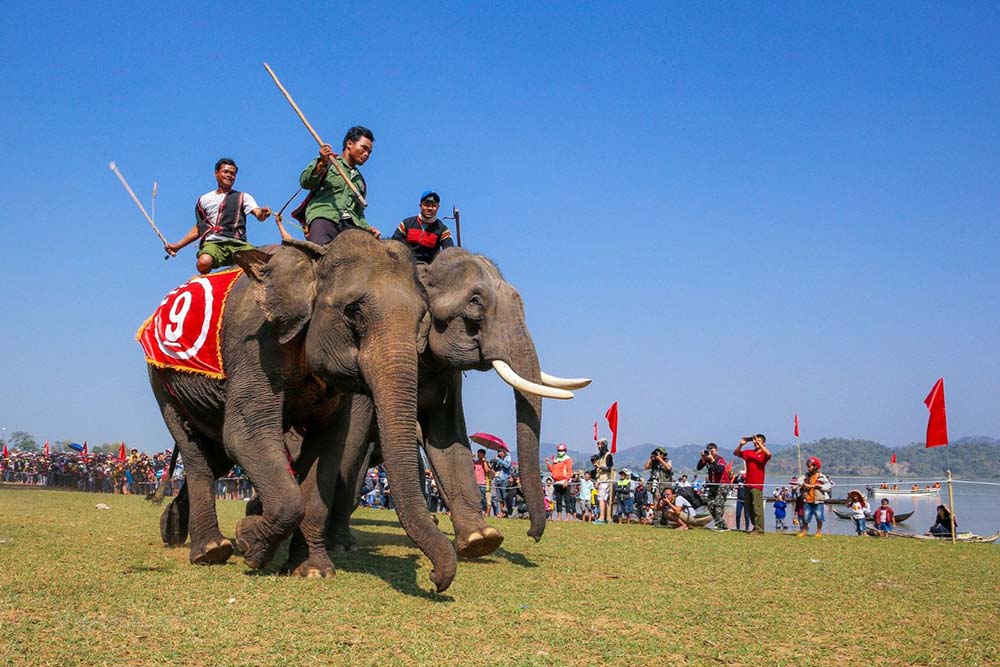
The Central Valley Elephant Running Festival is a special event that celebrates the region’s connection to elephants. This festival is held in Gia Lai and Dark Lak Province and features competitions between elephants. The local villagers will run through various obstacles. This festival highlights the close relationship between the people of the Central Highlands and these majestic animals as well as the culture of the region.
- Date: Usually held in March, coinciding with the end of the harvest season
- Place: Dak Lak or Gia Lai province at ethnic villages.
The Kate Festival
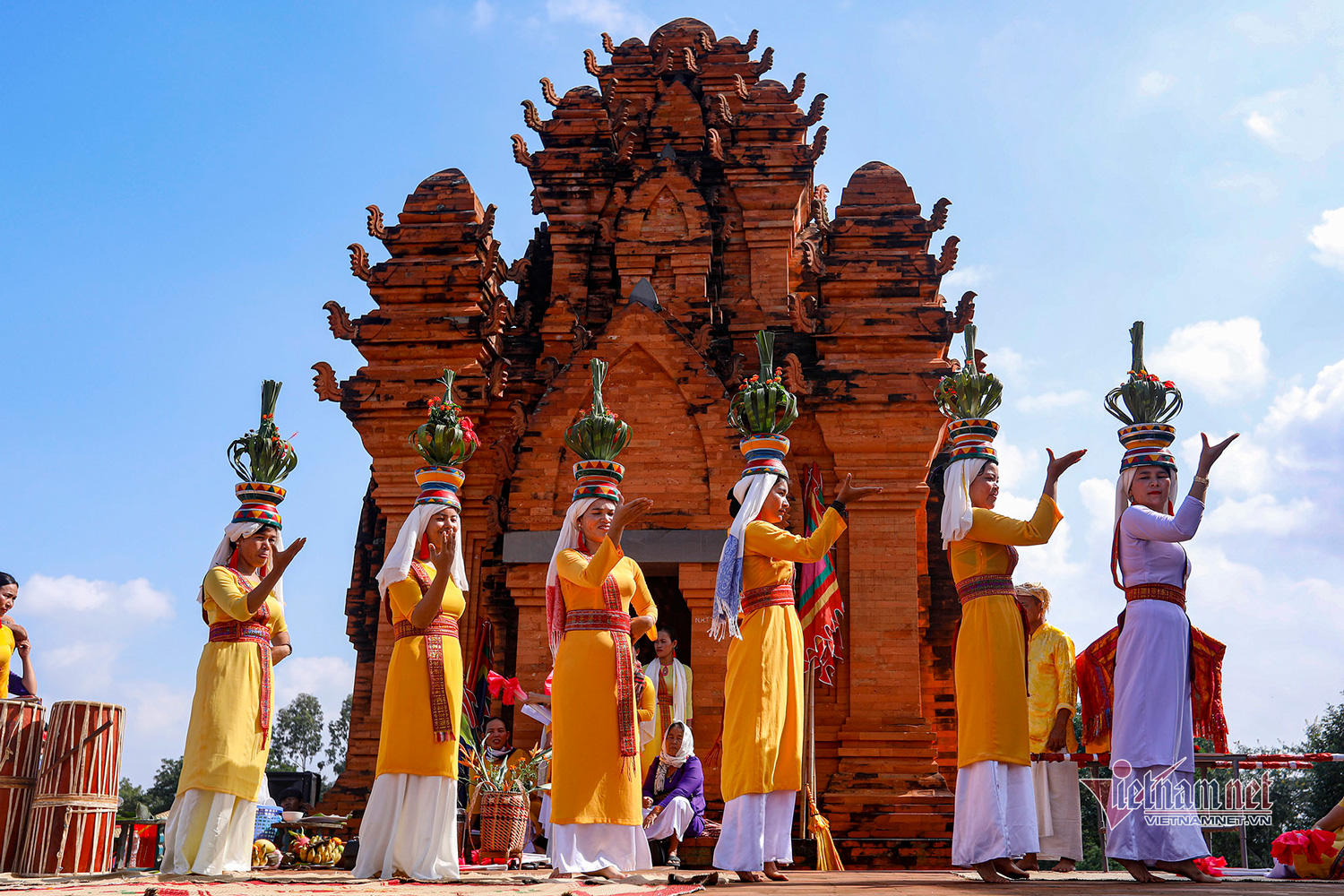
Kate Festival is an annual festival celebrated by the Cham people in central Vietnam. This festival is one of the most important cultural events in the Cham community. The Kate Festival is a time of honoring the gods and ancestors of the Cham, as well as celebrating the harvest season. Featured with colorful parades, folk dance and offerings of cakes and hard fruits. This festival showcases the different cultural and religious practices of the Cham people.
- Date: In October, during the seventh month of the Cham calendar
- Place: Ninh Thuan province
Culture Immersion with Festivals in Vietnam
Vietnam’s festivals reflect its rich cultural heritage, and traditions, and an invitation for you to immerse in the culture deeply. Whether you are captivated by the vibrant colors of Tet, the calming melodies of Quan Ho folk songs, or the bustling markets of the Mekong Delta, Vietnam’s festivals offer something for every taste. For both locals and tourists, these fairs are a great way to experience the essence of Vietnamese culture. So next time you visit Vietnam, don’t miss out on the fun of immersing yourself in the country’s most exciting and meaningful festivals!
